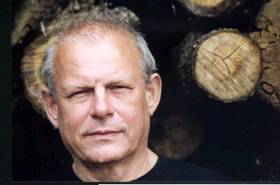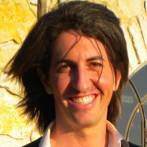|
TOWARD A SCIENCE OF CONSCIOUSNESS 2011 STOCKHOLM MAY 1-8, 2011 AULA MAGNA HALL
Plenary 8
Thursday May 5, 2011 11:10 am - 12:30 pm
DICK BIERMAN, Amsterdam, Presentiment MORAN CERF, NYU/UCLA, Time effects in human cortical neuronal firings
DICK BIERMAN, Amsterdam MORAN CERF, NYU/UCLA Dick Bierman started his university studies in experimental physics at the age of 16. Too young to realize that perhaps theoretical physics would have been better for his later interests. His Masters Thesis was on the extremely boring topic of Auger electron emission at metal surfaces. This research set the stage for his PhD work comparing behavior of metal surface- and gaseous targets under ion bombardment. After his PhD he headed the Instrumentation dept of the faculty of Psychology of the University of Amsterdam for a few years. In that period he was also teaching the course ‘Computer-Art’ for Crea, the Universities student society for Arts. The computer used was a PDP-11 (from DEC) and had to be booted (too often) using manual toggling in some machine code. He started also a local educational television show and produced simulations for a TV program on Statistics using the old PDP 11. Under his supervision a large scale project of 60 hours Courseware to teach Statistics was finished. After over 15 years this courseware is still in use, thus reducing the actual costs per student contact hour to less than 10 eurocents. As a consequence he became involved in AI-research in the field of so called Intelligent Tutoring Systems. From that (rather disappointing) experience he concluded that in the teaching process lots of non verbal and often non conscious processes are crucial. His interest therefore shifted towards consciousness studies in general and the relation between conscious and non conscious processes in particular. He was visiting researcher at Interval, Paul Allen’s thinktank in California, where he was involved in studying the role of the operator of Quantum Computers. He was also visiting researcher at StarLab in Brussels where he headed the Emotics group. Currently he is involved in research on intuitive decision making and research on the relation between consiousness and Quantum Physics. The latter research was triggered by his long standing interest in highly controversial but less boring so-called paranormal phenomena. In his view these phenomena, if real, should be incorporated in physics in an attempt to unify physics and psychology. Moran Cerf completed his Ph.D. at Caltech, working with Drs. Christof Koch and Itzhak Fried. He is currently a postdoctoral fellow at UCLA with Dr. Fried and at Caltech with Prof. Christof Koch. His graduate work was in Philosophy of Science (M.A) and Physics (B. Sc). Prior, Dr. Cerf worked for several years in the Israeli high-tech industry as a hacker. Dr. Cerf is interested in attention, emotions regulations, and dreams. His set of studies include examining the conscious control of single neurons in humans, the ability to affect altered states of consciousness as dreams or sleep, and the ability of humans to regulate high-level emotions.
|
|
|||||||||||||


